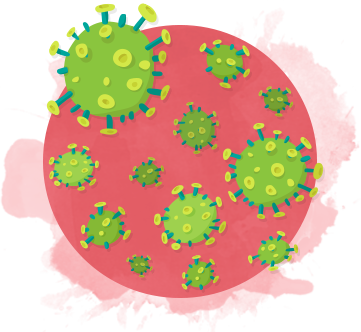Let’s get into the basics. What is HIV? How does it affect a person’s health? What can you do about it?
Human Immunodeficiency Virus (HIV) is not the same thing as Acquired Immune Deficiency Syndrome (or AIDS). HIV is an infection, and an HIV test will show if somebody has had the infection for at least a few weeks, showing that they are “HIV-positive”. Left untreated, HIV infection can gradually reduce the ability to fight other infections or diseases that a typical immune system can fight.
There are a few important, and interesting things to know about how HIV is passed from one person to another, the different stages of HIV, and how it can be treated.



